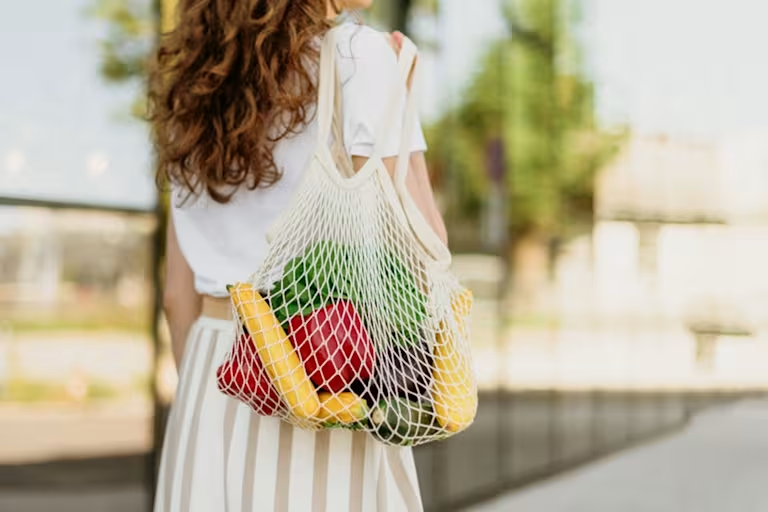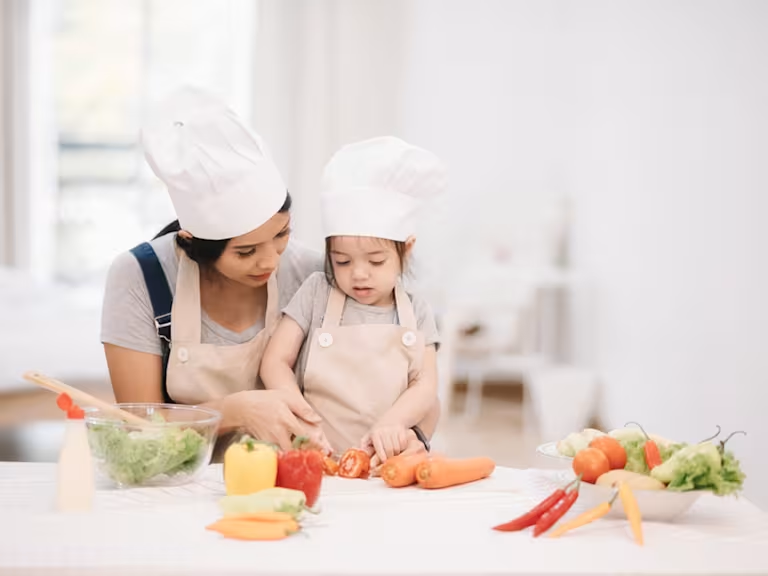
4 Singaporean Food Sustainability Initiatives to Follow - A Local’s Guide to Being a Sustainable Shopper

As the world increasingly faces the effects of climate change, there is much at stake for Singapore. However, any worthwhile steps towards sustainability need to be taken by both the government and by locals.
The Singapore Green Plan to advance the national agenda on sustainable development makes strides towards cohesion. However, Singaporeans will still be wondering how they can help. The answer? Making simple lifestyle changes and supporting local initiatives.
How is Singapore committing to a sustainable future?
The newly announced Singapore Green Plan revolves around five key pillars that will help Singaporeans create a greener, more liveable home for themselves and the future generations.
The five key pillars are:
- City in Nature- working to create a green, liveable and sustainable home for Singaporeans.
- Sustainable Living- making reducing carbon emissions, keeping the environment clean and saving resources and energy the new way of life.
- Energy Reset- using cleaner energy and increasing energy efficiency in homes and offices to lower Singapore’s carbon footprint.
- Green Economy- seeking green growth opportunities to create new jobs, transform industries and harness sustainability as a competitive advantage.
- Resilient Future- building up Singapore’s climate resilience and enhancing food security.
What kinds of sustainability initiatives are there?
Sustainability is an interesting term. Many reference sustainability in terms of environmental impact. However, sustainability is all encompassing, referring to human, social, and economic areas as well as environmental concerns.
Human sustainability refers to investing in health and education systems, access to services and nutrition. Social sustainability centres around preserving future generations while also acknowledging that actions have an impact on others and the world.
Economic sustainability is focused on improving the standard of living. While environmental sustainability aims to protect natural resources such as land, air and water. These four areas work together to ensure complete sustainability.
What does this mean for consumers?
When it comes to achieving true sustainability, we all have a part to play. This role can be as simple as growing your own vegetables or buying local produce to reduce your carbon footprint.
Reducing food waste by doing meal schedules, or donating excess food to the appropriate charities are other relatively easy steps for consumers to take. Singaporeans can also diversify their meals by going plant based to reduce greenhouse gas emissions.
4 food sustainability initiatives to support
In order for everyday Singaporeans to do their part towards achieving sustainable development, it’s important to champion local food sustainability initiatives that aim to change eating habits; from the foods we consume to how we dispose of packaging.
SFA
Singapore Food Agency is committed to overseeing food safety and food security from farm to fork. The mission is to ensure and secure a supply of safe food for Singapore. Consumers can support this initiative by shopping at wholesale markets.
Zero Waste SG
Introduced in 2008 to provide tips and resources on waste minimization and recycling, Zero Waste SG is leading the charge towards zero waste in Singapore through education and advocacy.
Susgain
Susgain is a free mobile app that incentivises Singaporeans to adopt more sustainable habits. It does this by allowing users to collect free points for their eco-friendly habits. These habits could include shopping at eco conscious businesses or using a water refill station.
Food Bank Singapore
Food Bank Singapore collects excess food from food suppliers and re-distributes them to organisations such as soup kitchens, family service centres and aged care facilities. Helping both social and environmental sustainability.
Other top initiatives to support
When it comes to achieving sustainability targets in Singapore, everyday Singaporeans can do more than changing just their eating habits. In fact, people can also change the way they shop for clothes, among other things.
Fashion Pulpit
Fashion Pulpit is Singapore’s first and largest swapping platform. This initiative has seen 75,000 fashion items saved since July 2018. By simply trading a shirt instead of buying a new one, you could save enough water for one person to drink for two and a half years.
BYO Singapore
BYO Singapore started in 2017 with the support of 430 retailers. In 2020, this support grew to 1,053 outlets from 132 brands. In short, BYO outlets offer incentives to customers who bring their own reusable bags, bottles or containers.
Seastainable
Seastainable is a business that supports marine conservation both in Singapore and around southeast Asia. Seastainable encourages individuals to reduce their plastic consumption through the use of their very own straws. The profits from these straws have gone on to contribute to funding for 33 conservation projects in five countries.
Switching to a more sustainable protein with Quorn
Achieving sustainability requires doing more, together. So, in order to achieve the targets detailed in the Singapore Green Plan, both the government and everyday people need to work together to make better choices.
These choices can be as simple as choosing to refill a water bottle rather than buying a new one, trading in clothes instead of buying new ones, or making dietary changes one or two nights a week.
For example, Quorn products have up to 90% lower carbon footprint. In fact, one family of four, eating Quorn mince just once a week for a year would save enough electricity to power a house for two whole weeks.
Quorn products not only taste good and are good for you, but also do good for the planet, just like the other sustainability initiatives listed. So, support Singapore’s sustainability goals and your health and browse the Quorn range today.




